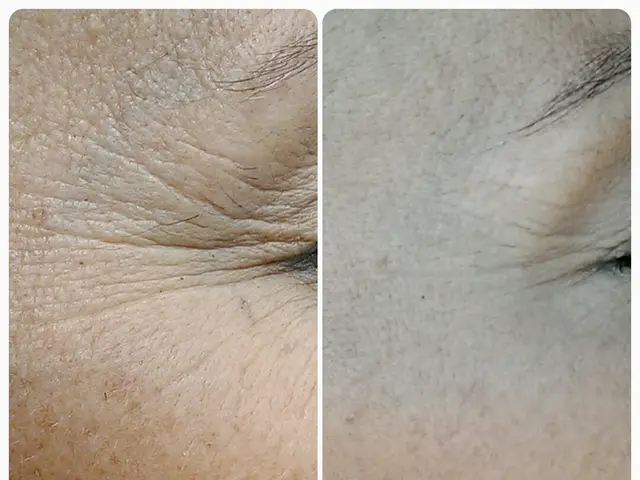Exploring the UK's Variety of Hair Transplant Centers: A Guide
Every day, numerous people scrutinize their reflected images, yearning for a transformation. For many, the experience of hair loss isn't merely a physical transformation but a deeply personal battle that can impact self-esteem and confidence. As hair transplant clinics multiply across the UK, the call for stringent regulation has never been louder. The importance of ethical practices in this sector cannot be overstated, given the far-reaching implications for health and safety.
During my tenure as a medical consultant, I recall an unforgettable encounter with a patient whose life was significantly altered by a successful hair transplant. She candidly shared her journey from self-doubt to newfound confidence, underscoring the emotional weight invested in these procedures. This encounter served as a potent reminder of the vital role regulations play in ensuring these clinics deliver safe, effective care, ultimately transforming lives in the process.
Regulatory Measures for Hair Transplant Clinics
The UK has outlined specific standards to govern hair transplant clinics, aiming to protect patients and uphold quality care. The primary oversight body is the Care Quality Commission (CQC), which meticulously monitors adherence to crucial protocols, including implementing strict hygiene practices and hiring certified medical professionals.
Beyond CQC oversight, clinics are encouraged to adhere to guidelines set by esteemed organizations such as the British Association of Hair Restoration Surgery (BAHRS). These guidelines tout ethical practices, compelling clinics to prioritize not only favorable patient outcomes but also transparency throughout their procedures-establishing a culture of trust.
Revolutionary Moments in the Industry
Milestone moments often steer the direction of an industry, and the hair restoration sector is no exception. A particularly significant turning point occurred when a respected clinic introduced a minimally invasive, innovative technique. This breakthrough not only set a new benchmark but fundamentally altered the narrative. Patients were now able to access procedures with shorter recovery times and enhanced results, reshaping their expectations of hair restoration.
One conference I attended showcased this groundbreaking technique. The atmosphere crackled with excitement, filled with healthcare professionals eager to absorb new insights. The comradery in the room was palpable, as we jointly recognized that the advancement of patient care was imminent. Such moments are a powerful reminder that the field continually progresses, fueled by our collective commitment to advancement.
Fostering Trust Between Patients and Clinics
In healthcare, trust serves as the foundational element of patient relationships-particularly in hair transplant clinics. Patients often approach these decisions with a mix of hope and nervousness, seeking not only aesthetic improvement but also assurance that they're in capable hands. Cultivating a trusting relationship can make a world of difference in shaping a positive patient experience.
Prioritizing open communication is key to fostering trust. This entails actively listening to patient concerns, providing accurate and honest information about procedures, and offering comprehensive post-operative support. In my experience, clinics that embrace transparency cultivate stronger bonds with their patients. One example is a clinic that initiated post-operative follow-up practices. The results were striking: patients felt genuinely cared for long after their procedures, fostering glowing testimonials and word-of-mouth referrals that boosted the clinic's growth.
The Evolution of Hair Restoration
The UK hair transplant landscape is on the cusp of transformative changes. Technology is poised to heighten not only the precision of procedures but also the overall patient experience. With the increasing integration of artificial intelligence in diagnostics and treatment planning, the promise of safer and customized care is becoming a reality.
Embarking on this venture is nothing short of exhilarating. Each day ushers in fresh opportunities to educate both providers and patients on the significance of regulatory standards, while celebrating the remarkable transformations that hair restoration can spark in individuals' lives. If you're interested in learning more about hair transplant procedures, hair transplant offers valuable supplementary details.
Moving forward, a steadfast commitment to patient safety and ethical practices is essential for hair transplant clinics in the UK. As we stride ahead, we carry with us an unwavering belief that every patient deserves superior care that meets-and ideally exceeds-their expectations.
For additional insight into this topic:
- Visit this web-site
- Stay tuned for the upcoming internet page
- The Care Quality Commission (CQC) plays a crucial role in monitoring hair transplant clinics in the UK, ensuring adherence to strict hygiene practices and hiring certified medical professionals.
- Beyond CQC oversight, guidelines set by the British Association of Hair Restoration Surgery (BAHRS) are designed to prioritize ethical practices and transparency, establishing trust between clinics and their patients.
- Technology, particularly the integration of artificial intelligence, is poised to revolutionize hair transplant procedures, offering safer and customized care to patients.
- A commitment to patient safety, ethical practices, and open communication is essential for hair transplant clinics. Cultivating trust is key to shaping a positive patient experience.








